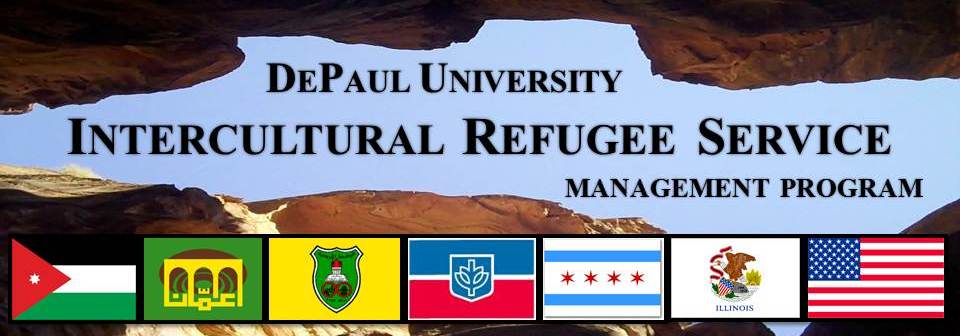The staff at the UNHCR office provided us valuable information on the nature of the Iraqi refugee situation in Jordan and they explained the UNHCR’s role in protecting and initiating the resettlement process for the Iraqi population there. It was incredibly helpful to learn about the political dimensions of the situation. This information gave me a better sense of the situation and challenges that the government faces from an influx of refugees. The level of coordination that needs to take place in order to respond to this situation is incredible; the government has to be able to mobilize resources from governments, inter-governmental organizations (IGOs), and international and national organizations.
Although the government of Jordan did not sign the 1951 Refugee Convention, or have any policies regarding the protection refugees, they coordinate with organizations like the UNHCR to address the refugee situation in Jordan. The way that the government has responded to the Iraqi refugees is an example of how they observed “the right to refuge or protection [as] a genuine and non-derogable Arab practice” (Abou-El-Wafa 2009, 30). UNHCR staff explained that the integration of 500,000 refugees is not an option for the government, and so Iraqis are labeled as guests in their country to emphasize their temporary stay in Jordan. Consequently they do not have a legal status. This constituted a light bulb moment: this was the reason why the Palestinian refugees were distinguished from the Iraqi refugees in our previous discussions.
This meeting made me realize how crucial partnerships between the sectors really are. I can’t see how the government of Jordan could have responded to this situation alone. Considering a government is not likely to have budgets, infrastructure, processes or resources available to absorb an unexpected influx of refugees, the unpreparedness only aggravates the scale of issue and the need for collaboration to mobilize resources from wherever they may be available. A response time would depend on the lag between when the government would actually realize the influx of refugees, and able to quantify their numbers, to when they would able to act on a plan they put together (that is, if they are doing something other than putting them in detention centers). Needless to say it was an overwhelming experience.
The visit to the International Office of Migration (IOM) further clarified the processes that need to take place in order to resettle refugees, and where it picks up from where the government left off.
I had the opportunity to talk to Sireen, one of the UNHCR staff. We discussed the fact that Jordan had not signed the 1951 Refugee Convention and how the government was responding to the Iraqi refugee situation. She responded with conviction and passion when she said that the government wasn’t just deporting the refugees out of the country because these were individuals with real lives, families, and struggles. Sylvia mentioned how the U.S. deported many Cubans back to Cuba even though they were political refugees. It made me feel embarrassed. Sireen’s response was a good example of the Arab focus on the human dimension (Nydell 2006, 30). I was impressed by her assertive tone, which to me implied that deportation was not a humane option.


No comments:
Post a Comment